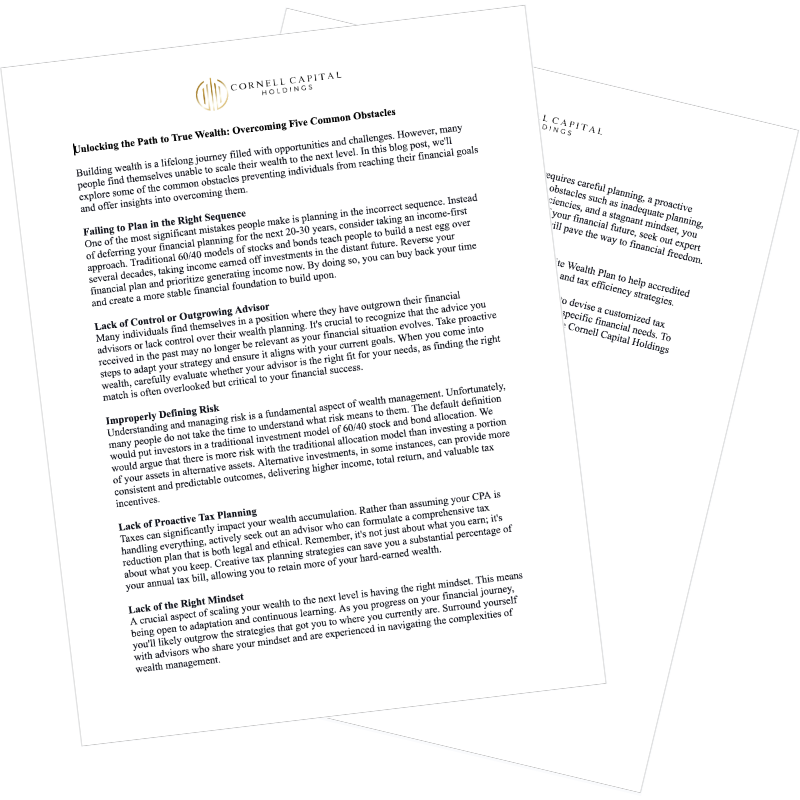Reverse Financial Plan
Why wait a lifetime to achieve financial freedom?
Take control of your financial future with the Reverse Financial Plan
Building wealth is a goal for nearly all investors, but there are different ways to go about it. For some, investing is about finding assets that will rise in price leading to capital gains. For others, investing is about receiving regular income streams from a portfolio of investments.
At Cornell Capital Holdings, we help our clients devise an income-first investment strategy that helps them achieve their financial goals sooner by investing in assets that generate passive income with the potential for long-term capital appreciation. It is a strategy we coined the Reverse Financial Plan.
How does it work?
With the Reverse Financial Plan, investors pay themselves first through advanced tax planning and asset maximization strategies. Assets like bonds and dividend-paying stocks, as well as alternative assets like real estate and other private investments that pay regular cash flow, can be found in an income-first portfolio.
The Reverse Financial Plan follows four steps:
Benefits and Risks
Like any investment strategy, there are both advantages and disadvantages to focusing on earning income through investments.
Benefits:
- Steady stream of income
- Less volatility as the assets tend to be uncorrelated to public equity markets
- Tax advantages innate to the specific asset types utilized
Risks:
- Credit risk
- Inflation risk
- Interest rate risk
There are 5 key mistakes people make

Let’s Redefine Your Financial Future
Schedule a call so together we can create a financial plan that is designed for your unique needs and aspirations.
Please note that any tax strategies or examples provided are merely estimates of what may be possible, and there is no guarantee that you will achieve the same results. This outcome is dependent on numerous factors and should be approached with caution. Additionally, please be aware that this advice is not intended to assist with avoiding penalties that may be imposed by the IRS. It’s important to note that while Dana Cornell is a Certified Investment Management Analyst and Certified Financial Planner is not a CPA, he is a here to assist and guide you toward financial freedom.
